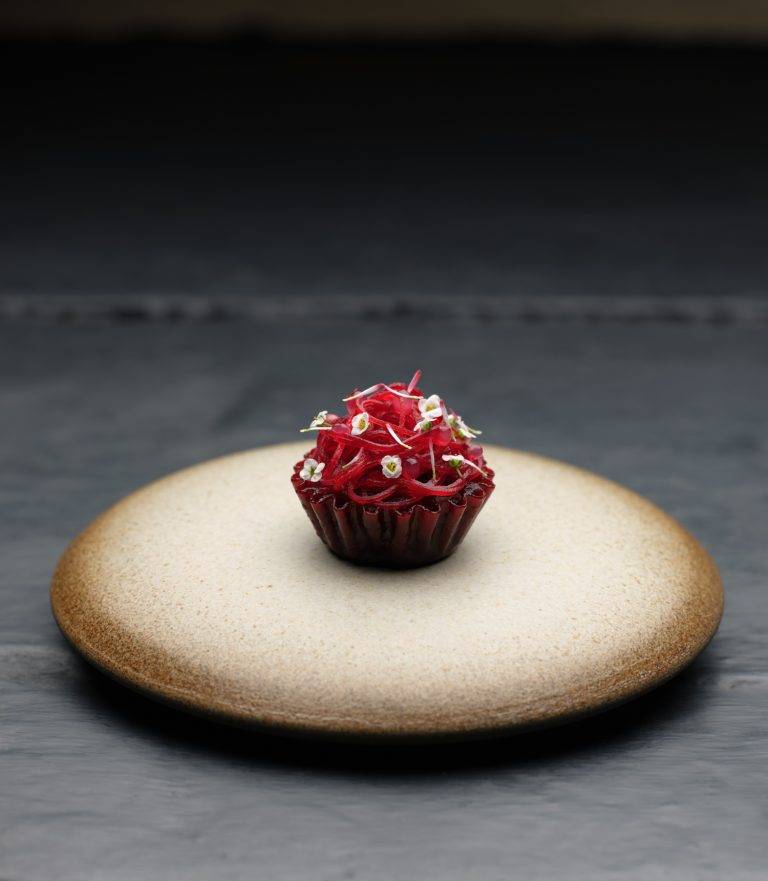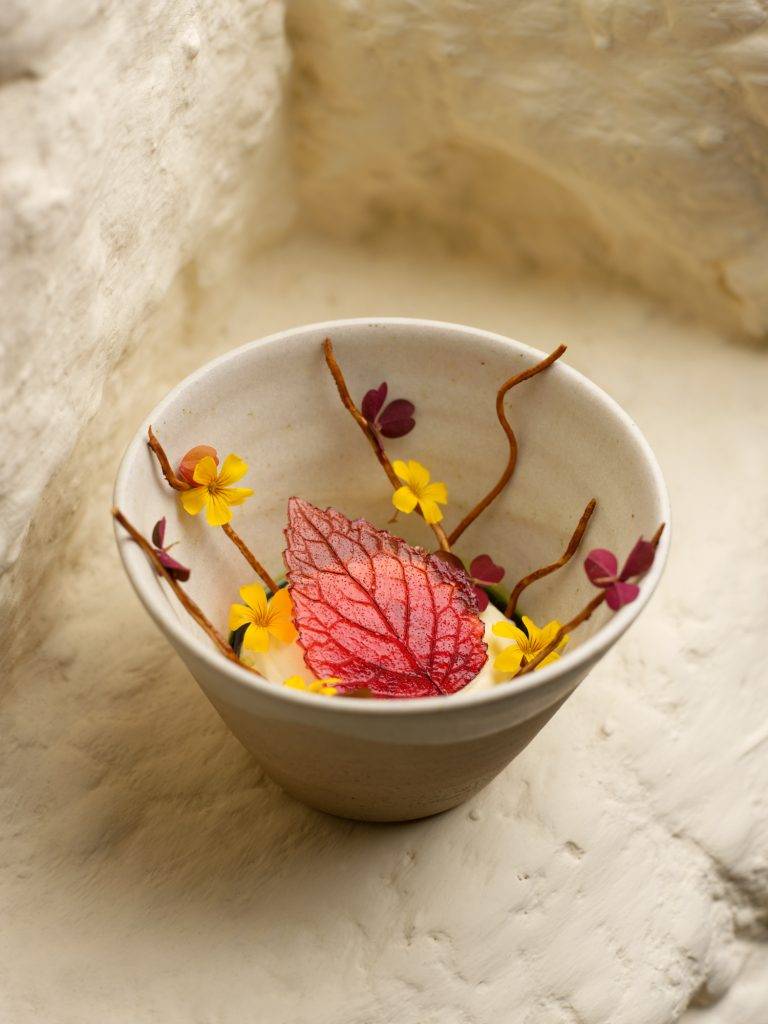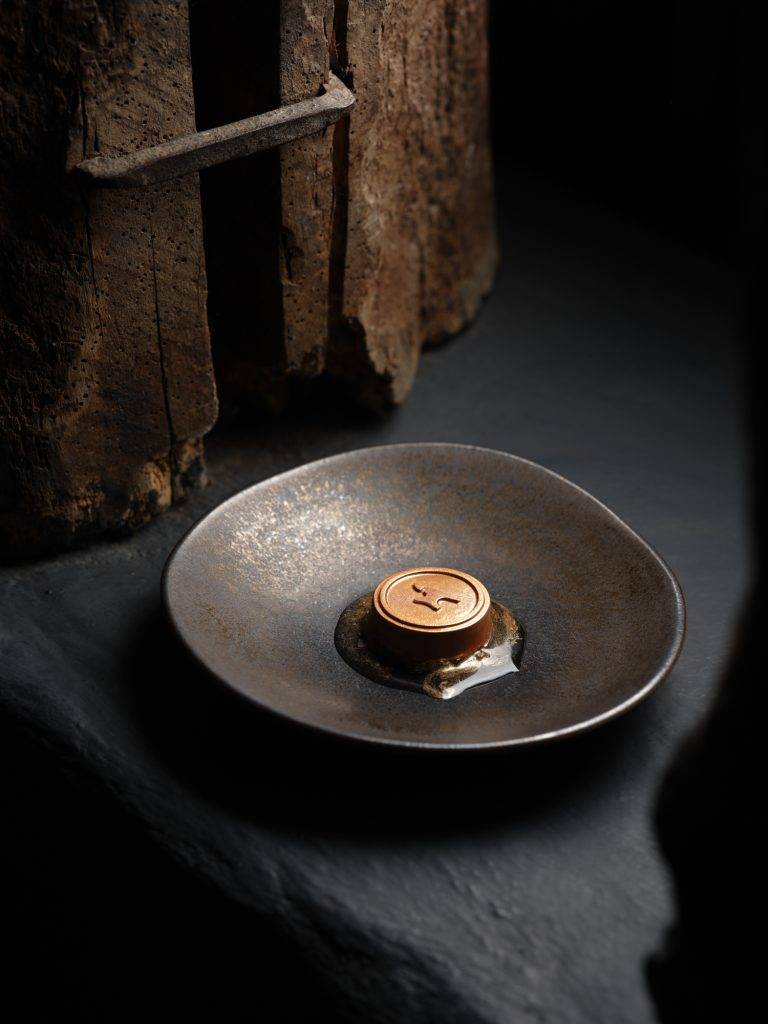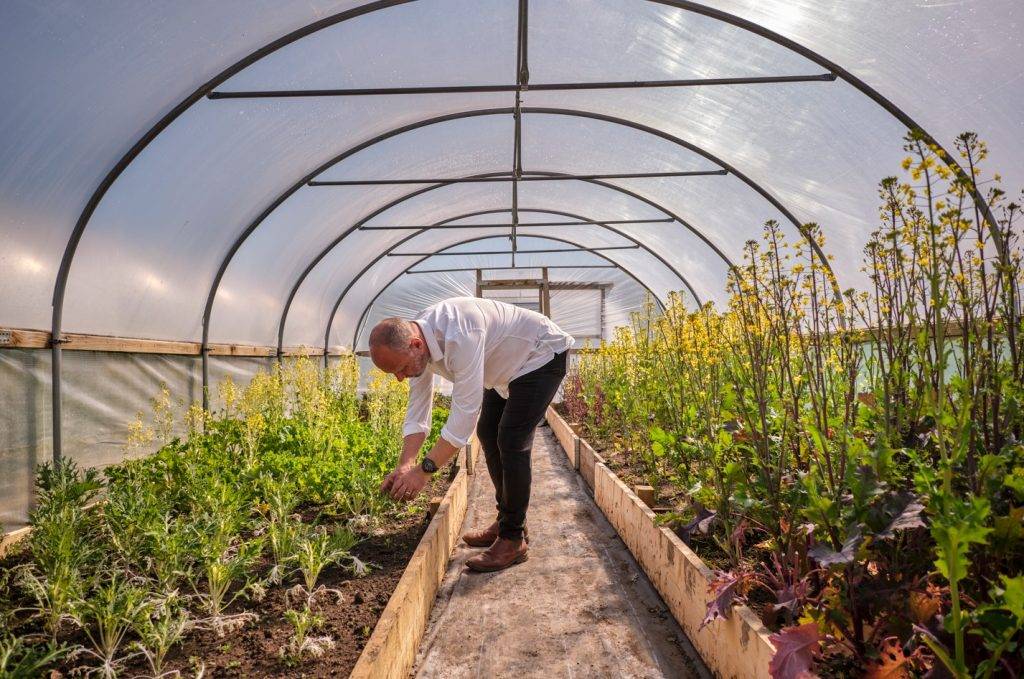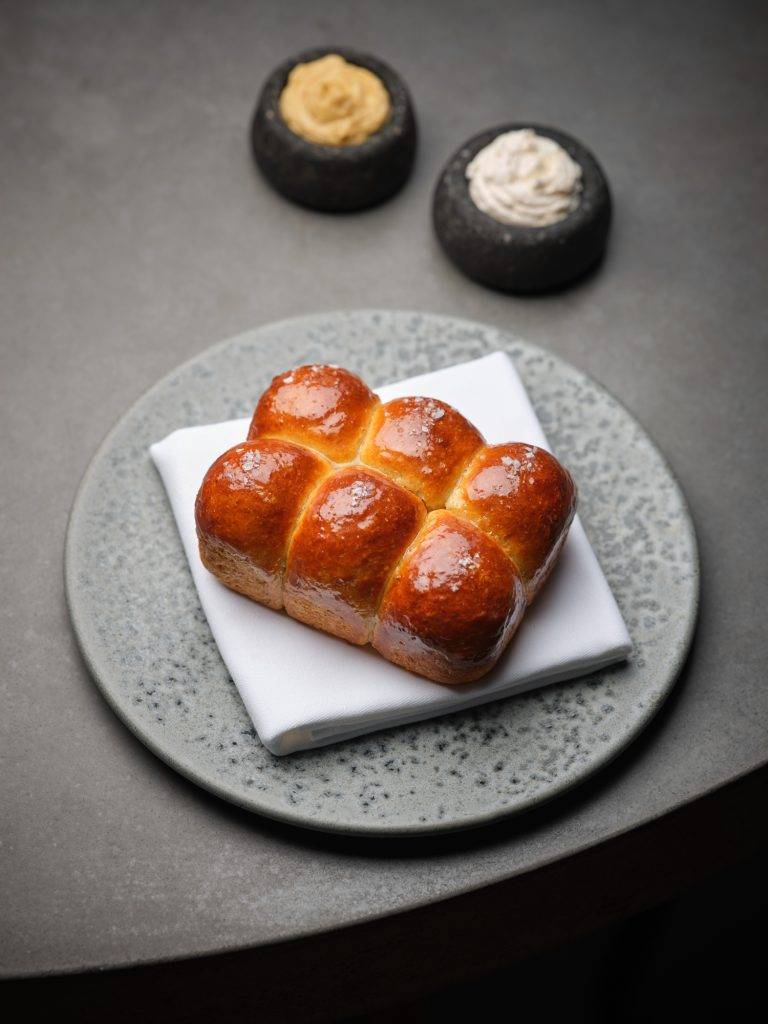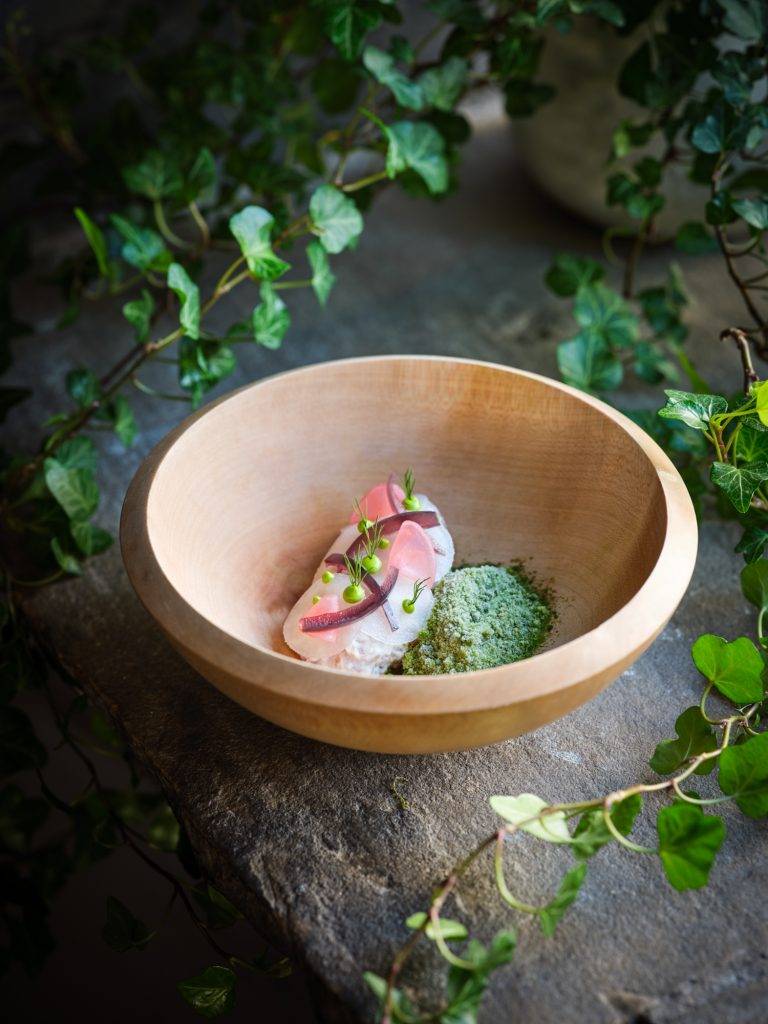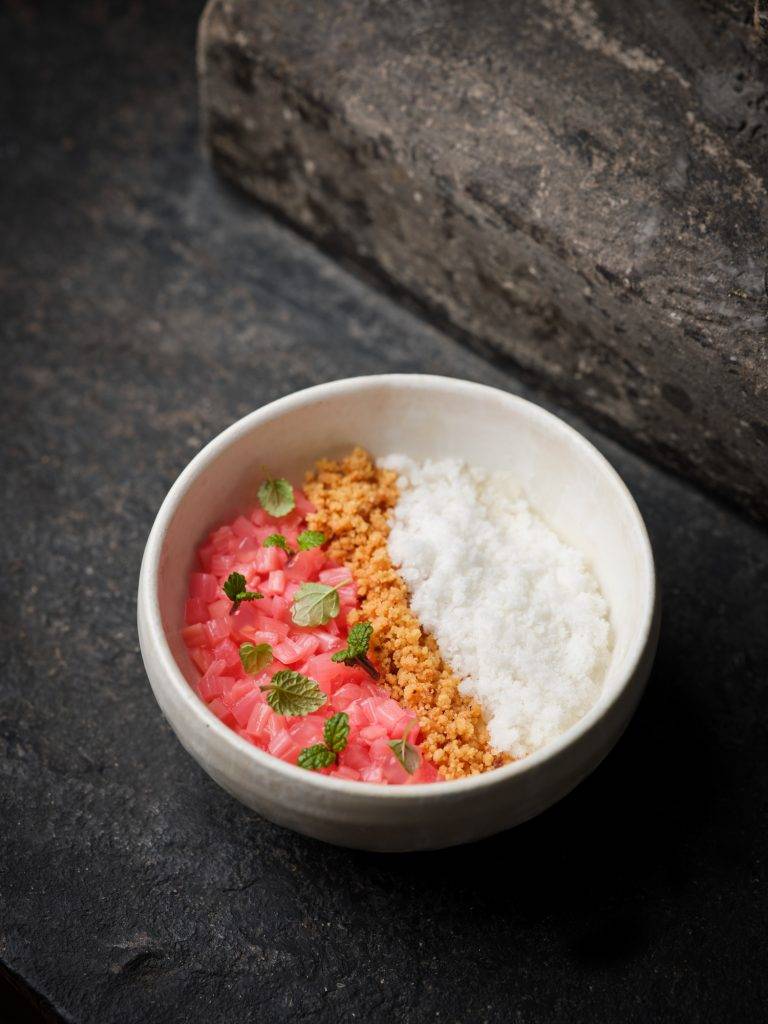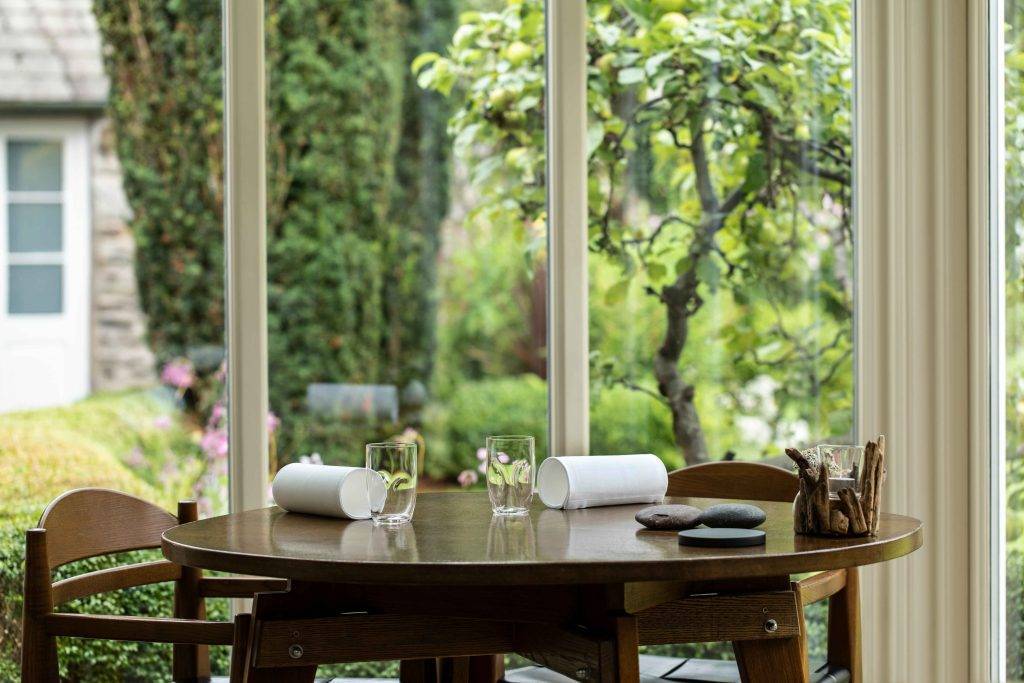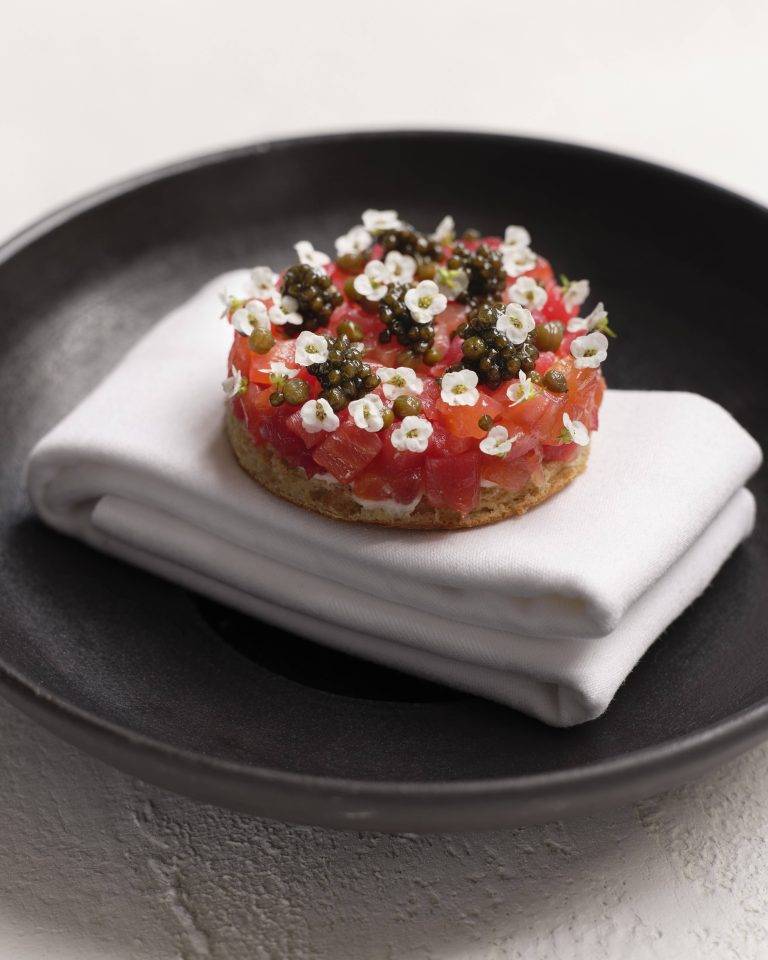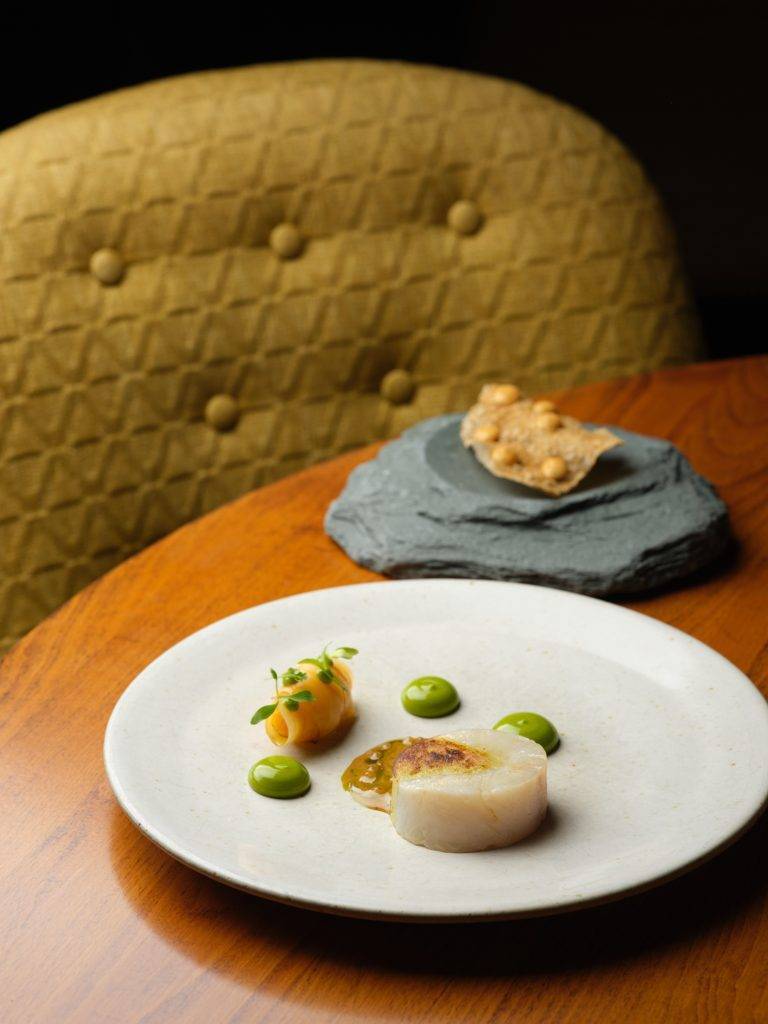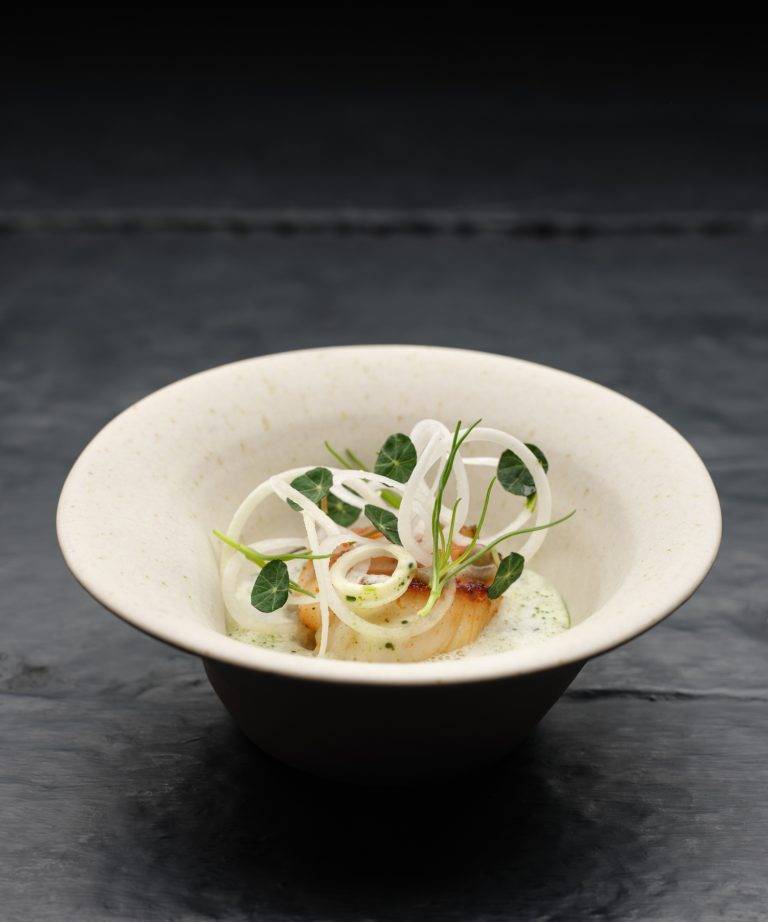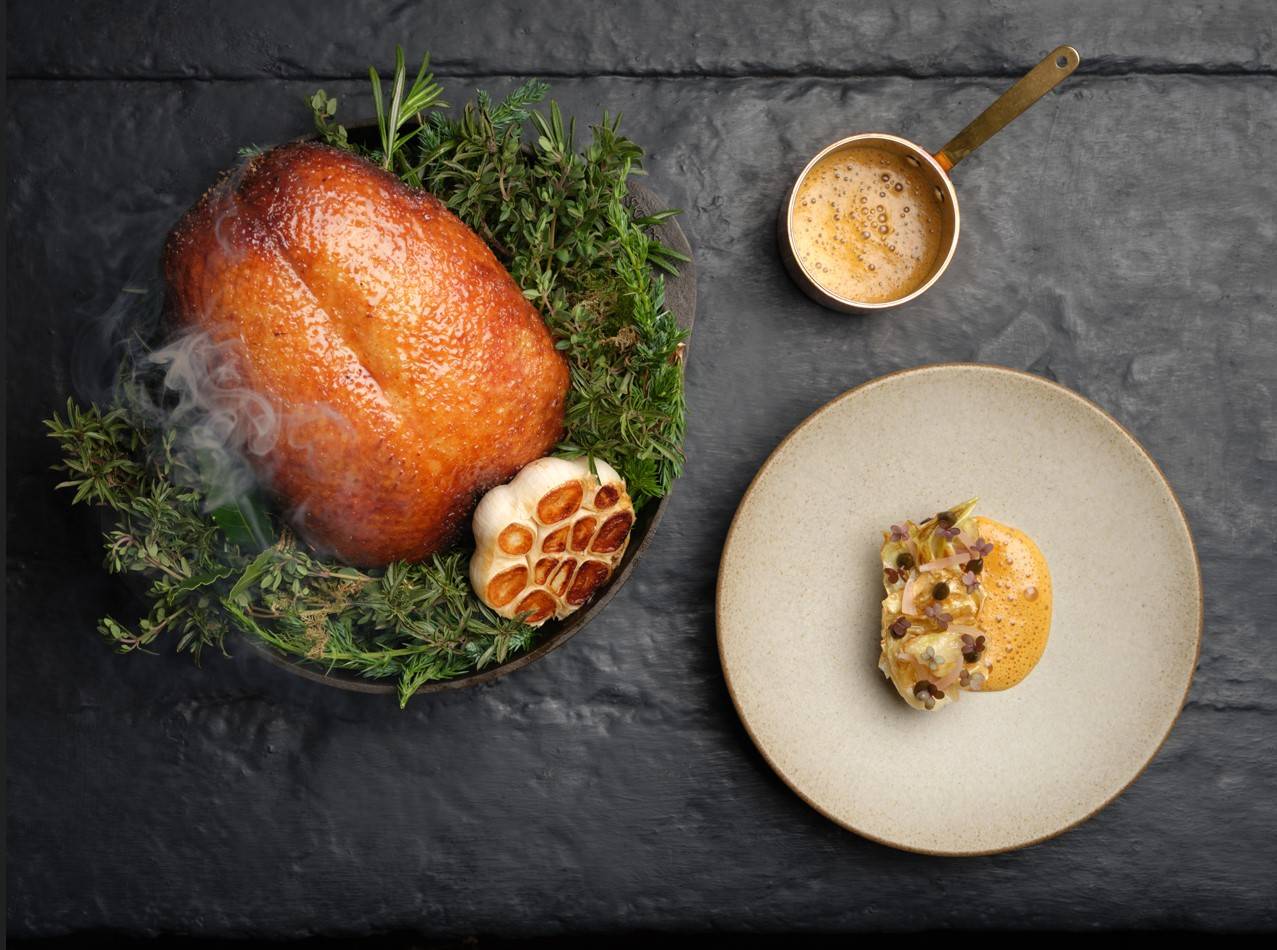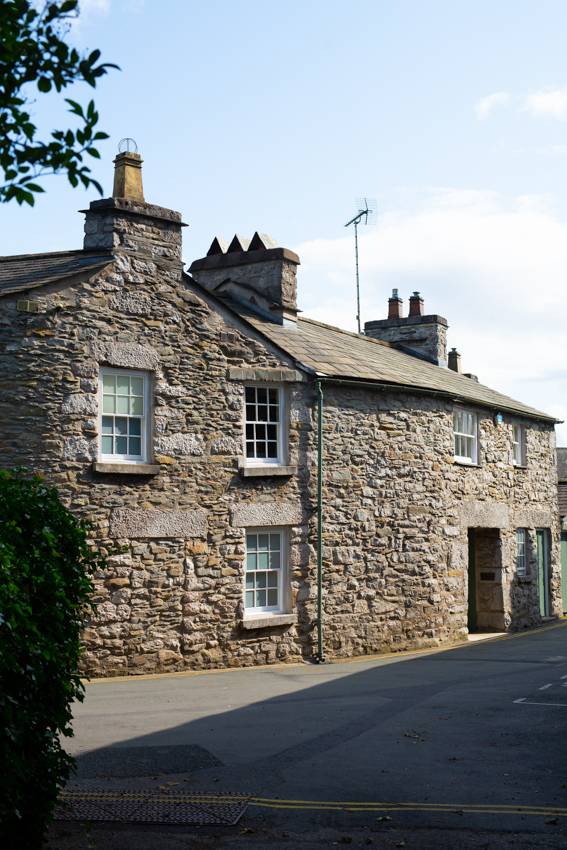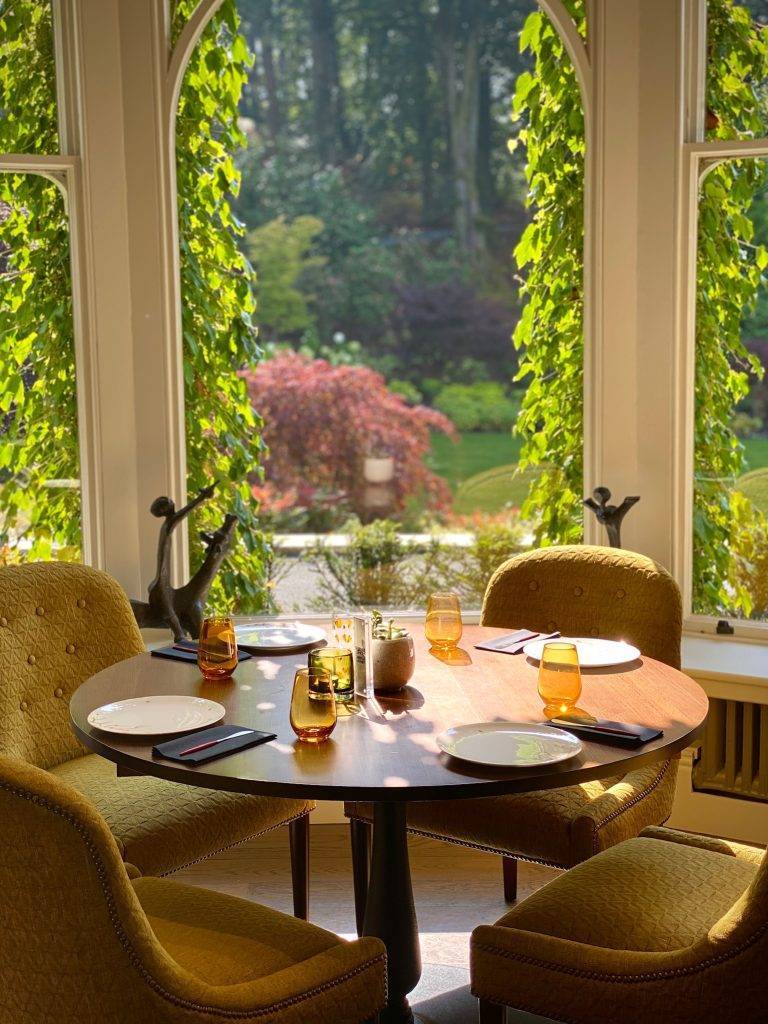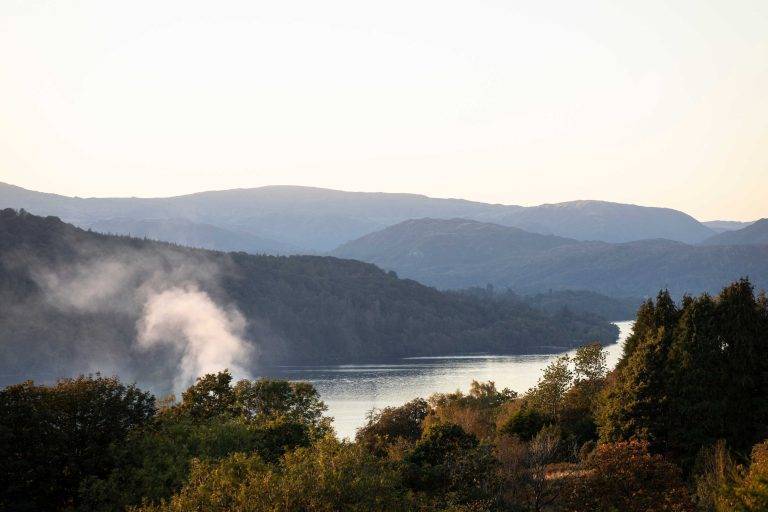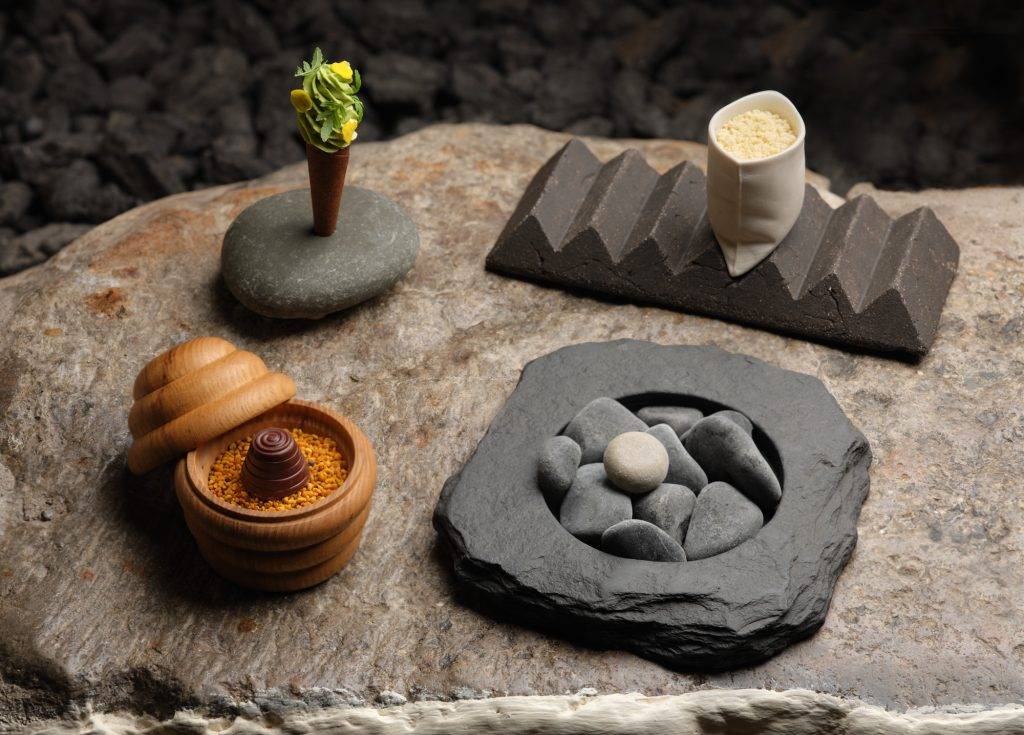There’s no doubt that over the last 20 years, chef Simon Rogan has spearheaded a change in the British culinary landscape. Even with all the success that he’s achieved at his handful of restaurants, his foot still remains firmly on the accelerator, always heading towards a bigger, brighter and more sustainability-focused future.
FOUR speaks with the gastronomic legend to learn more about his background, his philosophy and his enduring passion for the culinary arts…
Why did you choose to pursue a career as a chef? How did you get your start, and what steps led to your current position?
My dad worked in wholesale fruit and veg, so I’d say that’s where my interest started. He’d bring home unusual varieties that you couldn’t find in supermarkets, and it sparked a curiosity in me. My first restaurant job was at a Greek restaurant in Southampton. From that, I went to culinary college, where I was surrounded by lots of aspiring young talent, which is when I knew I wanted to pursue a career as a chef. After college, I worked at Rhinefield House Hotel in Hampshire before moving to Geddes Restaurant in Southampton, under Jean Christophe Novelli, joining the pastry team. From there, I got experience at a number of restaurants across the country before I moved to Paris for a two-year stint at the three-star Lucas Carton under Alain Sederens. Ever since college, it was always a dream to open my own restaurant, so when I stumbled across Cartmel, it felt natural, even though I was from the south and didn’t really know much about The Lake District.
What do you enjoy most about being a chef? What professional and personal experiences drive you forward in your career and push your cuisine style?
Being able to experiment with ingredients and flavours. I am never bored as a chef as I am constantly trying new combinations, growing new produce and evolving. Our aim of working towards being a fully self-sufficient restaurant is getting closer and is always a constant driving factor. Our Farm now provides most of the produce to all my UK-based restaurants, and we are constantly adding new schemes and evolving our practices.
What, or who, would you say has inspired your cooking the most? What Chef do you think best represents the culinary arts and why?
The farm is the centre of everything we do and is a constant source of inspiration to me. Walking the rows of beds and seeing the abundance of colours and an array of things growing is one of my favourite things to do. I make sure I go to the farm as much as possible when I’m in Cartmel.
I have always been an advocate of the farm-to-table ethos, which goes hand in hand with sustainability and low to no waste. It’s great to see that these are now buzzwords, and more restaurants and hospitality venues are addressing the issues and changing the way they do things. We always have, and continue to use, a lot of pickling and fermenting as a way of preserving fruit and veg from the farm so that nothing goes to waste. You can see this a lot in dishes at my restaurants; we even char some offcuts to use as ash on dishes.
I’d say Alain Ducasse. It’s amazing that he’s managed to maintain the highest standard and quality across his collection of worldwide restaurants even though they span seven countries – it’s something I’m aspiring to do.
What do you find most challenging about being a chef? How do you deal with the challenges faced both in your kitchen and in the industry as a whole?
The major problem engulfing the industry currently is staffing; it’s affecting the industry country-wide. As a response to this, I started The Simon Rogan Academy in 2021 in collaboration with Kendal College. It’s an 18-month apprenticeship training chefs and front-of-house staff. During the programme, students work across all my Lake District restaurants getting first-hand industry experience so they can gain knowledge, learn new skills and escalate their passion for food and drink. The course culminates in a stage at one of my international restaurants. The first intake of students has just finished, and it was a great success.
What awards have you or your kitchen(s) received, and how does this affect your process?
I have a total of five Michelin stars between three of my restaurants. L’Enclume in The Lake District has three stars (the first outside of London and the South East of England to receive this), while Rogan & Co, also in The Lakes, and Roganic in Hong Kong both have one Michelin star. L’Enclume and Roganic Hong Kong also have Michelin Green Stars for their sustainable practices. In addition, L’Enclume holds the top spot in the Good Food Guide, and it has five AA rosettes. I work as hard now as I did when I first opened L’Enclume in 2002 before it had any awards. Of course, receiving the third Michelin star was amazing, but it hasn’t changed anything on a day-to-day basis and how I approach cooking.
What do you think makes a dish successful, and what role does creativity play in the process?
Creativity and seasonality go hand in hand when creating a dish. The fresher the ingredient, the better the end product will taste – that motto is always at the forefront of my and my team’s minds. We are very lucky to have lots of amazing local produce that literally comes from down the road. One of my favourite parts of being a chef is creating new dishes that reflect the abundance of flavours around us.
Describe your culinary style and how it has developed over time…
I am a hyper-seasonal and produce-driven chef. My menus are innovative and champion flavour and locality. Due to Our Farm expanding over the years, I am able to be more hyper-local with my dishes now than ever before. This July, we launched A Day at Our Farm, where guests begin with a tour of the farm and snacks en route from respective growing beds, followed by lunch at an al fresco table using produce grown only metres away – it’s a really immersive experience and education into why the farm is such an important part of everything we do.
What would you say is the main course on the menu at the restaurant?
At L’Enclume, we serve a tasting menu, so there isn’t a main course as such, so impossible to pick. At Rogan & Co, we serve an à la carte menu – one of my favourite mains is the Herdwick lamb with creamed potato, farmed spinach and wild garlic, but I also love the pressed and roasted artichoke with salsify, garlic and Parkhouse cheddar, which showcases the farm ingredients really well. Henrock is also à la carte and always has meat, fish and veggie options. It leans heavily on techniques and produce that the team discovers on their travels.
What do you think makes a restaurant or menu successful? How does the menu reflect the needs or wants of your guests?
Having an incredible experience and time at a restaurant is about more than just the food; the service and atmosphere play a part too. The menus at all my restaurants are created by a team of talented chefs who work with produce available to them at the time, creating diverse dishes which, in turn, create a unique experience – and I believe a combination of all these is why guests choose to come.
What are your most indispensable ingredients?
Scallops – I can’t imagine not having them on the menu; either hot or cold, you’ll always find them throughout the year. Apart from that, I’d say it’s all about balance; the right level of acidity and umami, the correct seasoning and the freshness of the ingredients. And what’s in seasons, of course.
What is your least favourite ingredient, and why do you prefer to not cook with it?
Anything that has been imported and spent days in cold containers, it loses all flavour and texture.
What are a few of your current favourite dishes on the menu, and why?
Currently, I’d say two of our cheese dishes. The first is Berkswell pudding caramelised in Birch sap, Stout vinegar and aged Berkswell; the other is frozen Tunworth cheese with a Malt crumb, quince and lemon thyme. They have both been on the menu for a while now and although they slightly differ with the seasons, they have become a classic and a favourite of mine.
What do you think is special or makes the restaurant stand out from similar restaurants?
I’d like to believe it was all about the cooking, but I’m sure the beautiful landscape (of my Lake District restaurants) and the stars help! Each of my restaurants has a slightly different experience depending on its location, although they all have the same informal service, which you don’t typically find in restaurants of this level, but something I think is very important for diners. For example, my places in The Lakes are more than just the restaurant; it’s knowing everything you eat is from within a few miles and the stunning setting. When I opened L’Enclume, farm-to-fork wasn’t really a used word, so I have become known for being an early pioneer of this movement, which I’d like to think is why people book in.
What changes have you witnessed in the local and global food scene in recent years? How have you adapted to these changes as a chef, and how have they influenced the restaurant?
Even though we had been doing it before, the lockdown heightened people’s interest in seasonal cooking. The lack of produce available during the pandemic, and since then the ongoing shortages of imported goods, has made people realise the importance of eating local. Climate change is playing a large part in this. Obviously, climate change is a huge global problem, but it does mean that we can now grow ingredients in the UK that we never used to be able to, such as English sparkling wine, which is now a global player. We actually have our own exclusive English sparkling rosé with award-winning producer Exton Park which is very exciting and wouldn’t have been possible 20 years ago.
More and more restaurants are recycling now and using waste products in cocktails/finding alternatives to just chucking it out. I’ve especially noticed the change in Hong Kong, where recycling hasn’t always been a thing until fairly recently. We have brought in a closed system at the farm, meaning nothing goes to waste and have introduced large hand-turned composters to address waste and environmental impacts.
What kind of restaurants do you eat at and why?
Anything Asian; Thai, Vietnamese, Chinese, Korean – I love it all. The flavours are so interesting and tasty, and it’s a cuisine I can’t make as well for myself. I also find it relaxing; there’s just something about it.
To find out more about Simon Rogan and his restaurants, visit simonrogan.co.uk…

